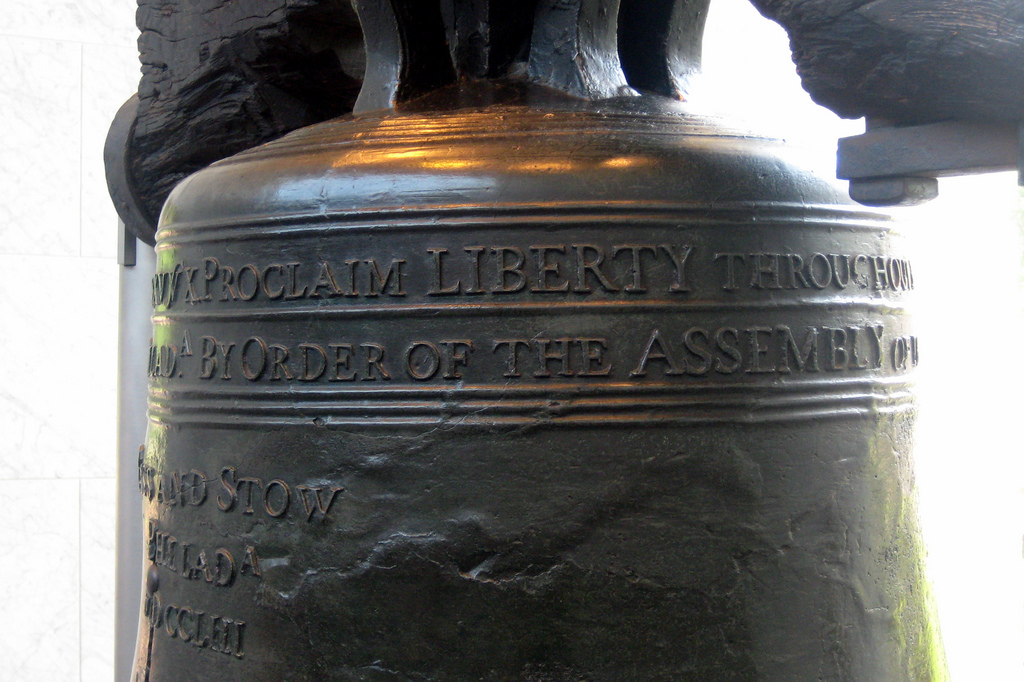Liberty preservation bill seeks to limit reach of federal detainment law
By Becca Heller
[email protected]

The Liberty Bell inscription: “Proclaim LIBERTY throughout the Land unto all the inhabitants thereof.” Leviticus 25:10 (by wallyg/flickr)
The Maryland Liberty Preservation Act of 2013, which prohibits state officers from detaining an American indefinitely and without due process, got the support of Marylanders opposed to action recently legalized in the National Defense Authorization Act.
“Regardless of political ideology, regardless of what side of the political spectrum you occupy, every person has the right to due process of law and the presentation of evidence,” said Harford County resident Scott DeLong in his testimony at the House Health and Government Operations Committee Thursday.
DeLong was one among many individuals who attended the hearing in order to express their opposition to the Defense Authorization Act and support state resistance the controversial federal bill.
Preserving constitutional rights
Sponsored by Republican Del. Don Dwyer, the Maryland Liberty Preservation Act, HB558, is grounded in preserving constitutional rights and basic freedoms.
“First the Patriot Act and now by way of the NDAA, Americans and Marylanders find themselves having the God given right of liberty ripped from beneath their feet,” said Dwyer. “HB 558 responds to the unconstitutional codification of indefinite military detention of civilians captured from any battlefield — without charge or trial.”
The NDAA was passed on the basis that the War on Terror brought the “battlefield” to which Dwyer referred right to U.S. soil. However, several witnesses highlighted parallels between U.S. actions in WWII and the potentially threatening federal act.
“This week marked the 71st anniversary of Franklin Roosevelt’s signing of Executive Order 9066,” said Carroll County Resident Scott Strzelczyk, referring to the legislation that created military zones within the U.S. and permitted to unjust detainment. “Roughly 120,000 Japanese Americans were rounded up and sent to internment camps.”
Witnesses see potential for abuse
Witnesses also argued that the lack of specificity in the NDAA provisions left room for interpretation and a great potential for abuse of the law.
“Although it seems far-fetched as we sit here today that the indefinite detention provisions in the NDAA would ever be used against people engaged in non-violent protest, the fact remains that it could easily be turned into a tool of political repression,” said Susan Udry, executive director of the Defending Dissent Foundation. “And that, unfortunately, is not unprecedented in our country.”
Dwyer’s bill seeks to limit the local impact of the potentially dangerous articles in the NDAA and give Marylanders a sense of security within the state.
“This bill as amended is intended to ensure that no person can detain any other person in Maryland without due process of law,” Dwyer said.

MarylandReporter.com is a daily news website produced by journalists committed to making state government as open, transparent, accountable and responsive as possible – in deed, not just in promise. We believe the people who pay for this government are entitled to have their money spent in an efficient and effective way, and that they are entitled to keep as much of their hard-earned dollars as they possibly can.
